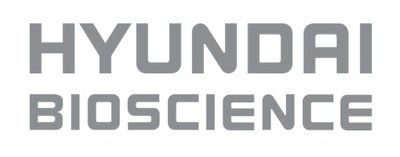Hyundai Bioscience announced on the 11th that phase 2 clinical trial of CP-COV03 for COVID-19 patients has begun.
- Hyundai Bioscience launches CP-COV03 Phase 2 clinical trials
- "To be an innovative medicine like penicillin that led to victory in the bacterial war"
- Significant changes to the 'vaccine-dependent' virus response system
SEOUL, South Korea, May 12, 2022 /PRNewswire/ -- The birth of a universal antiviral drug with a mechanism applicable to all viral infections is approaching.
This antiviral agent, developed in Korea, has an innovative 'viral removal' mechanism applicable to all viruses, unlike existing antiviral agents that target only specific viruses. It is expected to open a new chapter in the world's antiviral drug history if it produces valid clinical results.
Hyundai Bioscience announced on the 11th that phase 2 clinical trial of CP-COV03 for COVID-19 patients has begun. CP-COV03 is an orally administered antiviral drug (active ingredient: niclosamide) developed as a universal treatment for viral diseases including COVID-19.
CP-COV03 is an innovative broad-spectrum antiviral agent with a pharmacological action that helps human cells to remove viruses by promoting 'autophagy' mechanism, in which cells recognize the virus as a foreign substance and remove it themselves.
If CP-COV03 is confirmed to be effective against COVID-19 in this clinical study, it means that a universal antiviral drug is born not only for COVID-19 and its variants, but also for almost all other viruses such as influenza, hepatitis, AIDS, Ebola, and herpes. Expected to gain the focus of the scientific communities, a favorable study result may become a 'flare shot' to signal the birth of the universal antiviral drug.
Existing antiviral agents that inhibit the replication of specific viruses have a limited range of allowed patients due to drug toxicity, and are likely to cause the virus drug-resistance. CP-COV03, having the characteristics of a new antiviral mechanism that targets cells, is free from such problems.
CP-COV03 in phase 2 clinical trial, targeting the launch of a universal antiviral drug, is in many ways similar to the human efficacy test of penicillin conducted in 1941, and is attracting extraordinary interest from the scientific society. Penicillin, the world's first universal antibiotic, is a drug developed based on the mechanism of inhibiting bacterial cell wall formation by antibacterial substances from blue mold. The birth of penicillin freed mankind from the fear of bacteria.
Hyundai Bioscience explained that "the discovery of a substance with the mechanism that kills bacteria led to the 20th century medicine called penicillin," and that "CP-COV03 with a mechanism to eliminate viruses by promoting autophagy will be the first universal antiviral drug like penicillin".
CP-COV03 as a broad-spectrum antiviral agent is expected to enable a rapid preemptive treatment for viral infection, thereby preventing virus pandemics. If this happens, it is expected to bring about a major change in the current virus response system, which is primarily dependent on vaccines for viral cluster infections.
<References>
Penicillin, the '20th century drug' that led to victory in the bacterial war
The development of 'penicillin', a major antibiotic, is considered one of the 10 milestone events in the medical field of the 20th century. Penicillin was discovered accidentally out of blue mold in 1928 by Scottish bacteriologist Alexander Fleming, but he failed to develop an antibacterial agent. However, a follow-up study by Howard Florey and Ernst Chain, two scientists at Oxford University in England, led to the development of the world's first antibiotic in 1942. In World War I, the mortality rate from bacterial pneumonia reached a whopping 18%, but fell to less than 1% in World War II thanks to penicillin.
Penicillin is a drug developed based on the mechanism by which the blue mold (scientific name Penicillium), a microorganism, creates antibacterial substances on its own to survive an attack by bacteria, inhibiting and sterilizing the cell wall formation of bacteria. The discovery of a mechanism capable of killing bacteria, and a substance that exerts that mechanism, made penicillin one of the great medicines of the 20th century. As penicillin exerts antibacterial effects against not only staphylococci but also streptococci, meningitis, gonorrhea, diphtheria and a wide range of other bacterial infections, humans have finally been freed from the fear of bacteria.
Although mankind has won the battle against bacteria by developing such an effective antibiotic, there is still no effective universal treatment such as penicillin for major viral infections. Like penicillin, which eradicates various bacteria, no mechanism has been found to remove viruses regardless of type, nor has a substance with such pharmacological action been found.
Intracellular 'autophagy' that kills viruses
Human cells self-decompose and recycle unnecessary proteins inside. This is called the 'autophagy' action of cells. Cells also protect themselves from attack by bacteria or viruses through such autophagy, which can be viewed as a kind of immune action.
Research related to cell autophagy began in the mid-1950s. Around this time, scientists discovered that there are tiny organs inside the cell that break down substances. Then, in 1974, Belgian scientist Christian Debub, winner of the Nobel Prize in Physiology or Medicine, confirmed that unnecessary components of cells were decomposed by these organs, and named it autophagy. Japanese scientist Yoshinori Ohsumi was awarded the 2016 Nobel Prize in Physiology or Medicine for discovering a gene that plays an important role in autophagy.
Viruses containing proteins are known to inhibit the autophagy of cells in order to prevent them from being degraded by autophagy when invading a host cell. However, it has been confirmed through various studies and experiments in the scientific community that niclosamide has a pharmacological action that inversely promotes the autophagy of cells.
![]() View original content to download multimedia:https://www.prnewswire.com/news-releases/a-novel-universal-antiviral-drug-introduced-in-korea-301545941.html
View original content to download multimedia:https://www.prnewswire.com/news-releases/a-novel-universal-antiviral-drug-introduced-in-korea-301545941.html
SOURCE Hyundai Bioscience
Company Codes: Korea:048410





